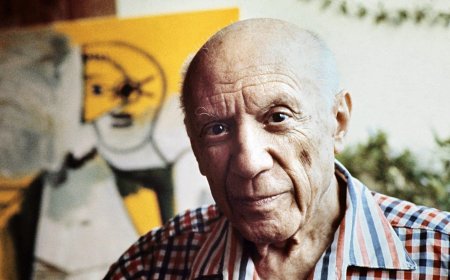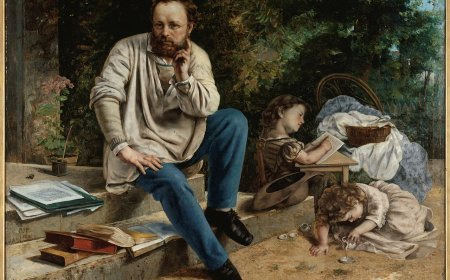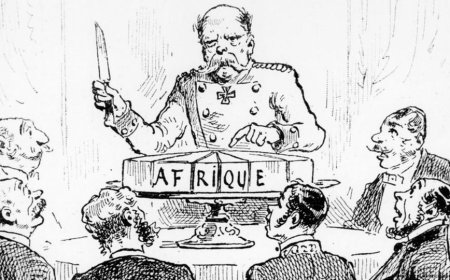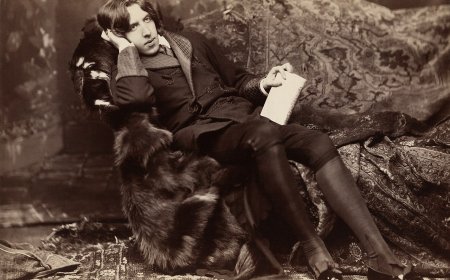The tragic fate of Oscar Wilde
Oscar Wilde (1854-1900) was an Irish playwright, poet, novelist, and essayist, renowned for his wit, flamboyant personality, and sharp social commentary. He was one of the most notable writers of his time, but he was also a victim of the social prejudice of his time.

Oscar Fingal O'Flahertie Wills Wilde was born on October 16, 1854, in Dublin, Ireland, to parents Sir William Wilde, a successful surgeon, and Jane Wilde, a poet and writer. He attended Trinity College, Dublin, where he excelled in classical studies and literature. He later studied at Magdalen College, Oxford, where he became known for his distinctive clothing, wit, and involvement in aesthetic and literary circles.
Wilde embraced the Aesthetic Movement, which emphasized "art for art's sake" and valued beauty, style, and self-expression. His first published work was a collection of poems titled "Poems" (1881), marked by its decadent and ornate style. His play "Vera, or, The Nihilists" was produced in New York in 1883, but it didn't achieve much success.
He start gaining prominence through his lectures and writings on art, literature, and culture. In 1884, he married Constance Lloyd, and they had two sons together, Cyril and Vyvyan. His career soared with the success of his plays. "Lady Windermere's Fan" (1892), "A Woman of No Importance" (1893), "An Ideal Husband" (1895), and his most famous work, "The Importance of Being Earnest" (1895), are comedic masterpieces known for their witty dialogue, satire, and social commentary.
Despite his achievements, Wilde's personal life was marred by rumors of his homosexuality and extramarital affairs.
His life took a tragic turn when he sued the Marquess of Queensberry, who accused him of homosexual relationships. The libel trial that followed exposed Wilde's private life, leading to his arrest and trial.
Imprisonment, decline and death
The events that led to Oscar Wilde's imprisonment were closely tied to his relationship with Lord Alfred Douglas, also known as "Bosie." Lord Alfred Douglas was a young aristocrat and poet who became Wilde's lover and, ultimately, a central figure in Wilde's downfall. Here's an overview of their relationship and its impact on Wilde's imprisonment:
Wilde and Lord Alfred Douglas met in 1891 when Douglas was a young undergraduate at Oxford University. They were introduced by mutual friends and quickly developed a close and intense relationship.
Lord Alfred was openly gay, and his association with Wilde marked a significant turning point in Wilde's life. Their relationship became romantic and passionate. As Wilde and Douglas' relationship intensified, it drew attention from society due to its open and controversial nature. Homosexuality was socially unacceptable and legally prohibited during that time.
Wilde's association with Douglas and his growing reputation for being openly homosexual contributed to rumors and public speculation. Lord Alfred Douglas' father, the Marquess of Queensberry, strongly disapproved of his son's relationship with Wilde. Queensberry was known for his outspokenness and aggressive behavior.
Queensberry accused Wilde of corrupting his son and publicly referred to Wilde as a "posing somdomite," using a derogatory term for a homosexual. In response to Queensberry's accusations, Wilde decided to sue him for libel. However, this decision led to a chain of events that would ultimately result in Wilde's downfall.
During the libel trial, evidence of Wilde's homosexuality and his relationship with Douglas came to light. The trial, which took place in 1895, became a public spectacle that exposed Wilde's personal life and led to his own arrest.
The trial ended in Wilde's withdrawal of the libel case, but soon afterward, he was arrested and put on trial for "gross indecency," a criminal offense related to homosexuality. He was sentenced to two years of hard labor, a punishment that had devastating consequences for his health, reputation, and career.
Wilde's time in prison, which lasted from 1895 to 1897, had a profound impact on him physically and emotionally. He emerged from prison a broken man, both financially and socially. After his release Wilde lived in exile in France under the name Sebastian Melmoth. His health deteriorated, and he wrote fewer works during this period. He died on November 30, 1900, at the age of 46, due to meningitis.
Oscar Wilde's legacy is characterized by his witty, satirical writing and his unapologetic individualism. His works continue to be celebrated for their wit, humor, and exploration of societal norms and hypocrisies.
Wilde's life and experiences have also made him an emblematic figure in discussions about LGBTQ+ rights and the challenges faced by individuals in oppressive societies. Oscar Wilde's life and work remain influential and continue to captivate audiences around the world.
































































































